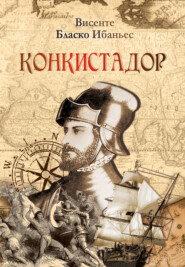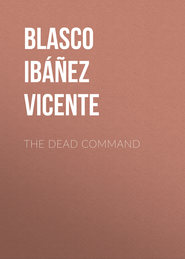По всем вопросам обращайтесь на: info@litportal.ru
(©) 2003-2024.
✖
Woman Triumphant (La Maja Desnuda)
Настройки чтения
Размер шрифта
Высота строк
Поля
How the master laughed at the memory of the childish simplicity that made him see in his master the most marvelous painter on earth!… Mornings, when he attended the classes in the School of Fine Arts, he grew angry at his comrades, a disrespectful rabble, brought up in the streets, sons of mechanics, who, as soon as the professor turned his back, pelted each other with the crumbs of bread meant to wipe out their drawings, and cursed Don Rafael, calling him a "Christer" and a "Jesuit."
The afternoon Mariano passed in the studio, at his master's side. How excited he was the first time he placed a palette in his hand and allowed him to copy on an old canvas a child St. John which he had finished for a society!… While the boy with his forehead wrinkled in his eagerness, tried to imitate his master's work, he listened to the good advice that the master gave him without looking up from the canvas over which his angelic brush was running.
Painting must be religious; the first pictures in the world had been inspired by religion; outside of it, life offered nothing but base materialism, loathsome sins. Painting must be ideal, beautiful. It must always represent pretty subjects, reproduce things as they ought to be, not as they really are, and above all, look up to heaven, since there is true life, not on this earth, a valley of tears. Mariano must modify his instincts—that was his master's advice—must lose his fondness for drawing coarse subjects—people as he saw them, animals in all their material brutality, landscapes in the same form as his eyes gazed upon.
He must have idealism. Many painters were almost saints; only thus could they reflect celestial beauty in the faces of their madonnas. And poor Mariano strove to be ideal, to catch a little of that beatific serenity which surrounded his master.
Little by little he came to understand the methods which Don Rafael employed to create these masterpieces which called forth cries of admiration from his circle of canons and the rich ladies that gave him commissions for pictures. When he intended to begin one of his Purísimas, which were slowly invading the churches and convents of the province, he arose early and returned to his studio after mass and communion. In this way he felt an inner strength, a calm enthusiasm, and, if he felt depressed in the midst of the work, he once more had recourse to this inspiring medicine.
The artist, besides, must be pure. He had taken a vow of chastity after he had reached the age of fifty, somewhat late to be sure, but it was not because he had not known before this certain means of reaching the perfect idealism of a celestial painter. His wife, who had grown old in her countless confinements, exhausted by the tiresome fidelity and virtue of the master, was no longer anything but the companion who gave the responses when he prayed his rosaries and Trisagia at night. He had several daughters, who weighed on his conscience like the reproachful memory of a disgraceful materialism, but some were already nuns and the others were on the way, while the idealism of the artist increased as these evidences of his impurity disappeared from the house and went to hide away in a convent where they upheld the artistic prestige of their father.
Sometimes the great painter hesitated before a Purísima, which was always the same, as if he painted it with a stencil. Then he spoke mysteriously to his disciple:
"Mariano, tell the gentlemen not to come to-morrow. We have a model."
And when the studio was closed to the priests and the other respectable friends, with heavy step in came Rodríguez, a policeman, with a cigarette stub under his heavy bristling mustache and one hand on the handle of his sword. Dismissed from the gendarmerie for intoxication and cruelty, and finding himself without employment, by some strange chance he began to devote himself to serving as a painter's model. The pious artist, who held him in a sort of terror, nagged by his constant petitions, had secured for him this position as policeman, and Rodríguez took advantage of every opportunity to show his rough appreciation, slapping the master's shoulders with his great hands and blowing in his face, his breath redolent with nicotine and alcohol.
"Don Rafael, you are my father. If anybody touches you, I'll fix him, whoever he is."
And the ascetic artist, with a feeling of satisfaction at this protection, blushed and waved his hands in protest against the frankness of the rude fellow with his threats for the men he would "fix."
He threw his helmet on the ground, handed his heavy sword to Mariano, and like a man that knows his duty, took out of the bottom of a chest a white woolen tunic and a piece of blue cloth like a cloak, placing both garments on his body with the skill of practice.
Mariano looked at him with astonished eyes but without any temptation to laugh. They were mysteries of art, surprises that were reserved only for those who, like him, had the good fortune to live on terms of intimacy with the great master.
"Ready, Rodríguez?" Don Rafael asked impatiently.
And Rodríguez, erect in his bath robe with the blue rag hanging from his shoulders, clasped his hands and lifted his fierce gaze to the ceiling, without ceasing to suck the stub that singed his mustache. The master did not need the model except for the robes of the figure, to study the folds of the celestial garment, which must not reveal the slightest evidence of human contour. The possibility of copying a woman had never passed through his imagination. That was falling into materialism, glorifying the flesh, inviting temptation; Rodríguez was all he needed; one must be an idealist.
The model continued in his mystic attitude with his body lost in the innumerable folds of his blue and white raiment, while under it the square toes of his army boots stuck out, and he held up his grotesque, flat head, crowned with bristling hair, coughing and choking from the smoke of the cigar, without ceasing to look up and without separating his hands clasped in an attitude of worship.
Sometimes, tired out by the industrious silence of the master and the pupil, Rodríguez uttered a few grumbles that little by little took the form of words and finally developed into the story of the deeds of his heroic period, when he was a rural policeman and "could take a shot at anyone and pay for it afterward with a report." The Purísima grew excited at these memories. His hands separated with a tremble of murderous joy, the carefully arranged folds were disturbed, his bloodshot eyes no longer looked heavenward, and with a hoarse voice he told of tremendous beatings he administered, of men who fell to the ground writhing with pain, the shooting of prisoners which afterwards were reported as attempts to escape; and to give greater relief to this autobiography which he declaimed with bestial pride, he sprinkled his words with interjections as vulgar as they were lacking in respect for the first personages of the heavenly court.
"Rodríguez, Rodríguez!" exclaimed the master, horror-stricken.
"At your command, Don Rafael."
And the Purísima, after passing the stub from one side of his mouth to the other, once more folded his hands, straightened up, showing his red-striped trousers under the tunic, and lost his gaze on high, smiling with ecstasy, as if he contemplated on the ceiling all his heroic deeds of which he felt so proud.
Mariano was in despair before his canvas. He could never imitate his illustrious master. He was incapable of painting anything but what he saw, and his brush, after reproducing the blue and white raiment, stopped, hesitating at the face, calling in vain on imagination. After futile efforts it was the grotesque mask of Rodríguez that appeared on the canvas.
And the pupil had a sincere admiration for the ability of Don Rafael, for that pale head veiled in the light of its halo, a pretty, expressionless face of childish beauty, which took the place of the policeman's fierce head in the picture.
This sleight-of-hand seemed to the boy the most astounding evidence of art. When would he reach the easy prestidigitation of his master!
With time the difference between Don Rafael and his pupil became more marked. At school his comrades gathered around him, recognizing his superiority and praising his drawings. Some professors, enemies of his master, lamented that such talent should be lost beside that "saint-painter." Don Rafael was surprised at what Mariano did outside of his studio—figures and landscapes, directly observed which, according to him, breathed the brutality of life.
His circle of serious gentlemen began to discover some merit in the pupil.
"He will never reach your height, Don Rafael," they said. "He lacks unction, he has no idealism, he will never paint a good Virgin—but as a worldly painter he has a future."
The master, who loved the boy for his submissive nature and the purity of his habits, tried in vain to make him follow the right way. If he would only imitate him, his fortune was made. He would die without a successor and his studio and his fame would be his. The boy only had to see how, little by little, like a good ant of the Lord, the master had gathered together a fair sized future with his brush. By virtue of his idealism, he had his country house there in the village, and no end of estates, the tenants of which came and visited him in his studio, carrying on endless discussions over the payment and amount of the rents in front of the poetic Virgins. The Church was poor because of the impiety of the times, it could not pay as generously as in other centuries, but commissions were numerous, and a Virgin in all her purity was a matter of only three days—but young Renovales made a troubled, wry face, as if a painful sacrifice were demanded of him.
"I can't, Master. I'm an idiot. I don't know how to invent things. I paint only what I see."
And when he began to see naked bodies in the so-called "life" class he devoted himself zealously to this study, as if the flesh caused in him the most violent intoxication. Don Rafael was appalled by finding in the corners of his house sketches that portrayed shameful nudes in all their reality. Besides, the progress of his pupil caused him some uneasiness; he saw in his painting a vigor that he himself had never had. He even noted some falling-off in his circle of admirers. The good canons, as always, admired his Virgins, but some of them had their portraits painted by Mariano, praising the skill of his brush.
One day he said to his pupil, firmly:
"You know that I love you as I would a son, Mariano, but you are wasting your time with me. I cannot teach you anything. Your place is somewhere else. I thought you might go to Madrid. There you will find men of your stamp."
His mother was dead; his father was still in the blacksmith shop, and when he saw him come home with several duros, the pay for portraits he had made, he looked on this sum as a fortune. It did not seem possible that anyone would give money in exchange for colors. A letter from Don Rafael convinced him. Since that wise gentleman advised that his son should go to Madrid, he must agree.
"Go to Madrid, my boy, and try to make money soon, for your father is old and will not always be able to help you."
At the age of sixteen, Renovales landed in Madrid and finding himself alone, with only his wishes for his guide, devoted himself zealously to his work. He spent the morning in the Museo del Prado, copying all the heads in Velásquez's pictures. He felt that till then he had been blind. Besides, he worked in an attic studio with some other companions and evenings painted water-colors. By selling these and some copies, he managed to eke out the small allowance his father sent him.
He recalled with a sort of homesickness those years of poverty, of real misery, the cold nights in his wretched bed, the irritating meals—Heaven knows what was in them—eaten in a bar-room near the Teatro Real; the discussions in the corner of a café, under the hostile glances of the waiters who were provoked that a dozen long-haired youths should occupy several tables and order all together only three coffees and many bottles of water.
The light-hearted young fellows stood their misery without difficulty and, to make up for it, what a fill of fancies they had, what a glorious feast of hopes! A new discovery every day. Renovales ran through the realm of art like a wild colt, seeing new horizons spreading out before him, and his career caused an outburst of scandal that amounted to premature celebrity. The old men said that he was the only boy who "had the stuff in him"; his comrades declared that he was a "real painter," and in their iconoclastic enthusiasm compared his inexperienced works with those of the recognized old masters—"poor humdrum artists" on whose bald pates they felt obliged to vent their spleen in order to show the superiority of the younger generation.
Renovales' candidacy for the fellowship at Rome caused a veritable revolution. The younger set, who swore by him and considered him their illustrious captain, broke out in threats, fearful lest the "old boys" should sacrifice their idol.
When at last his manifest superiority won him the fellowship, there were banquets in his honor, articles in the papers, his picture was published in the illustrated magazines, and even the old blacksmith made a trip to Madrid, to breathe with tearful emotion part of the incense that was burned for his son.
In Rome a cruel disappointment awaited Renovales. His countrymen received him rather coldly. The younger men looked on him as a rival and waited for his next works with the hope of a failure; the old men who lived far from their fatherland examined him with malignant curiosity. "And so that big chap was the blacksmith's son, who caused so much disturbance among the ignorant people at home!… Madrid was not Rome. They would soon see what that genius could do!"
Renovales did nothing in the first months of his stay in Rome. He answered with a shrug of his shoulders those who asked for his pictures with evident innuendo. He had come there not to paint but to study; that was what the State was paying him for. And he spent more than half a year drawing, always drawing in the famous art galleries, where, pencil in hand, he studied the famous works. The paint boxes remained unopened in one corner of the studio.
Before long he came to detest the great city, because of the life the artists led in it. What was the use of fellowships? People studied less there than in other places. Rome was not a school, it was a market. The painting merchants set up their business there, attracted by the gathering of artists. All—old and beginners, famous and unknown—felt the temptation of money; all were seduced by the easy comforts of life, producing works for sale, painting pictures in accordance with the suggestions of some German Jews who frequented the studios, designating the sizes and the types that were in style in order to spread them over Europe and America.
When Renovales visited the studios, he saw nothing but genre pictures, sometimes gentlemen in long dress coats, others tattered Moors or Calabrian peasants. They were pretty, faultless paintings, for which they used as models a manikin, or the families of ciociari whom they hired every morning in the Piazza di Espagna beside the Sealinata of the Trinity; the everlasting country-woman, swarthy and black-eyed, with great hoops in her ears and wearing a green skirt, a black waist and a white head-dress caught up on her hair with large pins; the usual old man with sandals, a woolen cloak and a pointed hat with spiral bands on his snowy head that was a fitting model for the Eternal Father. The artists judged each other's ability by the number of thousand lire they took in during a year; they spoke with respect of the famous masters who made a fortune out of the millionaires of Paris and Chicago for easel-pictures that nobody saw. Renovales was indignant. This sort of art was almost like that of his first master, even if it was "worldly" as Don Rafael had said. And that was what they sent him to Rome for!
Unpopular with his countrymen because of his brusque ways, his rude tongue and his honesty, which made him refuse all commissions from the art merchants, he sought the society of artists from other countries. Among the cosmopolitan group of young painters who were quartered in Rome, Renovales soon became popular.
His energy, his exuberant spirits, made him a congenial, merry comrade, when he appeared in the studios of the Via di Babuino or in the chocolate rooms and cafés of the Corso, where the artists of different nationalities gathered in friendly company.
Mariano, at the age of twenty, was an athletic fellow, a worthy scion of the man who was pounding iron from morning till night in a far away corner of Spain. One day an English youth, a friend of his, read him a page of Ruskin in his honor. "The plastic arts are essentially athletic." An invalid, a half paralyzed man, might be a great poet, a celebrated musician, but to be a Michael Angelo or a Titian a man must have not merely a privileged soul, but a vigorous body. Leonardo da Vinci broke a horseshoe in his hands; the sculptors of the Renaissance worked huge blocks of marble with their titanic arms or chipped off the bronze with their gravers; the great painters were often architects and, covered with dust, moved huge masses. Renovales listened thoughtfully to the words of the great English æstheticist. He, too, was a strong soul in an athlete's body.
The appetites of his youth never went beyond the manly intoxications of strength and movement. Attracted by the abundance of models which Rome offered, he often undressed a ciociara in his studio, delighting in drawing the forms of her body. He laughed, like the big giant that he was, he spoke to her with the same freedom as if she were one of the poor women that came out to stop him at night as he returned alone to the Academy of Spain, but when the work was over and she was dressed—out with her! He had the chastity of strong men. He worshiped the flesh, but only to copy its lines. The animal contact, the chance meeting, without love, without attraction, with the inner reserve of two people who do not know each other and who look on each other with suspicion, filled him with shame. What he wanted to do was to study, and women only served as a hindrance in great undertakings. He consumed the surplus of his energy in athletic exercise. After one of his feats of strength, which filled his comrades with enthusiasm, he would come in fresh, serene, indifferent, as though he were coming out of a bath. He fenced with the French painters of the Villa Medici; learned to box with Englishmen and Americans; organized, with some German artists, excursions to a grove near Rome, which were talked about for days in the cafés of the Corso. He drank countless healths with his companions to the Kaiser whom he did not know and for whom he did not care a rap. He would thunder in his noisy voice the traditional Gaudeamus Igitur and finally would catch two models of the party around the waist and with his arms stretched out like a cross carry them through the woods till he dropped them on the grass as if they were feathers. Afterwards he would smile with satisfaction at the admiration of those good Germans, many of them sickly and near-sighted, who compared him with Siegfried and the other muscular heroes of their warlike mythology.
In the Carnival season, when the Spaniards organized a cavalcade of the Quixote, he undertook to represent the knight Pentapolin—"him of the rolled-up sleeves,"—and in the Corso there were applause and cries of admiration for the huge biceps that the knight-errant, erect on his horse, revealed. When the spring nights came, the artists marched in a procession across the city to the Jewish quarter to buy the first artichokes—the popular dish in Rome, in the preparation of which an old Hebrew woman was famous. Renovales went at the head of the carciofalatta, bearing the banner, starting the songs which were alternated with the cries of all sorts of animals; and his comrades marched behind him, reckless and insolent under the protection of such a chieftain. As long as Mariano was with them there was no danger. They told the story that in the alleys of the Trastevere he had given a deadly beating to two bullies of the district, after taking away their stilettos.
Suddenly the athlete shut himself up in the Academy and did not come down to the city. For several days they talked about him at the gatherings of artists. He was painting; an exhibition that was going to take place in Madrid was close at hand and he wanted to take to it a picture to justify his fellowship. He kept the door of his studio closed to everyone, he did not permit comment nor advice, the canvas would appear just as he conceived it. His comrades soon forgot him and Renovales ended his work in seclusion, and left for his country with it.
It was a complete success, the first important step on the road that was to lead him to fame. Now he remembered with shame, with remorse, the glorious uproar his picture "The Victory of Pavia" stirred up. People crowded in front of the huge canvas, forgetting the rest of the Exhibition. And as, at that time, the Government was strong, the Cortes was closed and there was no serious accident in any of the bull-rings, the newspapers, for lack of any more lively event, hastened in cheap rivalry to reproduce the picture, to talk about it, publishing portraits of the author, profiles, as well as front views, large and small, expatiating on his life in Rome and his eccentricities, and recalled with tears of emotion the poor old man who far away in his village was pounding iron, hardly knowing of his son's glory.
With one bound Renovales passed from obscurity to the light of apotheosis. The older men whose duty it was to judge his work became benevolent and extended kindly sympathy. The little tiger was getting tame. Renovales had seen the world and now he was coming back to the good traditions; he was going to be a painter like the rest. His picture had portions that were like Velásquez, fragments worthy of Goya, corners that recalled El Greco; there was everything in it, except Renovales, and this amalgam of reminiscences was its chief merit, what attracted general applause and won it the first medal.















